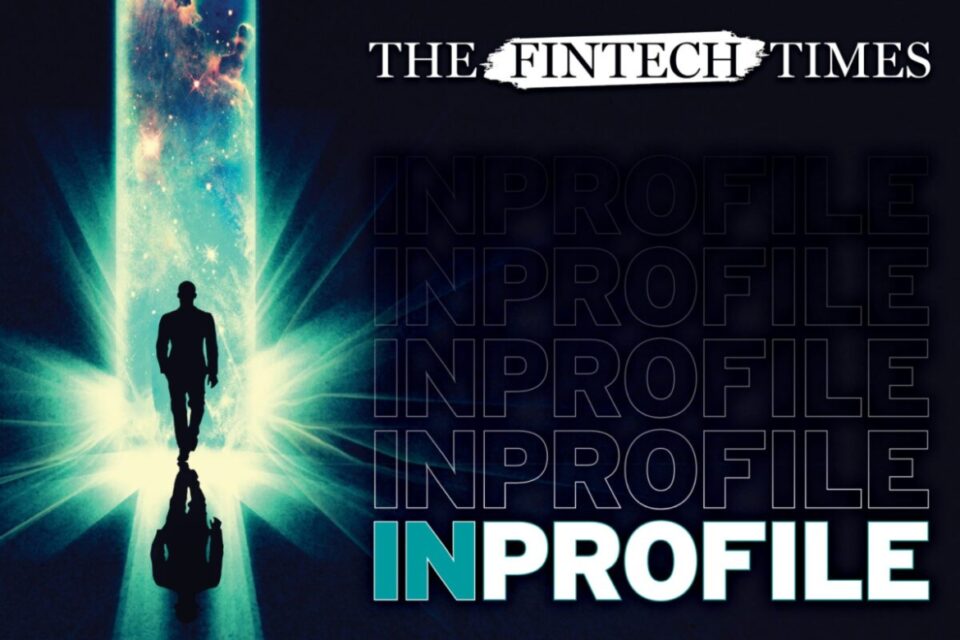In this months edition of the In Profile series, The Fintech Times sits down with Sam Edge, EMEA, Head of FinTech Business Development at Amazon Web Services (AWS). Sam is responsible for leading the Fintech go to market strategy, building the ecosystem across EMEA, and fuelling innovation and connectivity across the sector.
For over 15 years, Amazon Web Services has been the world’s most comprehensive and broadly adopted cloud platform. AWS has been continually expanding its services to support virtually any cloud workload, and it now has more than 200 fully featured services for computing, storage, databases, networking, analytics, machine learning and artificial intelligence (AI), Internet of Things (IoT), mobile, security, hybrid, virtual and augmented reality (VR and AR), media, and application development, deployment, and management. It recently announced the general availability of Amazon FinSpace, a purpose-built analytics service that reduces the time it takes FSI organisations to find, prepare, and analyse financial data from months to minutes.

What makes AWS and Fintech such a great combination?
Leveraging the benefits of AWS cloud has helped companies such as Wise (formerly TransferWise), OakNorth, Funding Circle and Monzo achieve their potential. This is due to a number of factors, including one-click regulation and compliance; seamless and safe transaction data backups; performance and scaling; high availability; support for a DevOps culture and state of the art artificial intelligence and machine learning services.
Fintech founders and executives searching for industry best practices can speak to AWS to learn about startup programs, compliance and security resources, and updated fintech case studies.
Our customers are leveraging AWS’s services to build fully regulated digital banks, global payments operations, and securities trading applications. BlockFi, for example, built a company on AWS that offers wealth management products to cryptocurrency investors and their CEO, Zac Prince, shared that “the support we have received from AWS since day 1 including the Activate program, technical support, and specialised fintech resources has been nothing short of fantastic.”
Other customers, like fintech startup Behalf, have found value in our go-to-market programs, including the AWS Partner Network (APN). Their CEO, Rob Rosenblatt, said that “AWS has been a powerful partner in helping Behalf build robust and secure infrastructure to power our B2B financing platform. Having access to APN has been instrumental in navigating the current fintech landscape, and the AWS Fintech team has been an excellent strategic partner for our continued growth.”
Is there anything that initially drew AWS towards fintech?
Startups are important for a number of reasons. They fuel innovation and experimentation, test the limits of what’s possible, solve challenging problems, and address gaps in peoples’ daily lives.
AWS fintech expertise has been built through years of experience working with fintechs and financial services organisations, including Stripe, Betterment, Afterpay, and Wise. Since AWS was launched 15 years ago, our relationship with fintechs, neobanks, and the people who build them has been based on our ability to deliver the innovation they need at the speed they move.
Have you developed any products specifically to manage fintech issues?
How AWS supports our financial services customers, and across every industry and segment, including startups and Fintechs doesn’t change – we obsess over our customers, we invent, we think long-term, and we make security and operational excellence our top priorities. AWS will continue to work with our financial services customers to innovate, transform, and tackle important challenges – 90% of what we build is driven by what customers tell us matters, and the other 10% are things we hear from customers and we try to read between the lines and invent on their behalf.
One example is Amazon FinSpace, which was announced in May 2021, to support our financial services customers. The service provides an easy-to-use web application that gives analysts at hedge funds, asset management firms, insurance companies, investment banks, and other financial services organisations access to the information they need and the ability to run powerful analytics on demand across all of their data.
FinSpace reduces the time you spend finding and preparing petabytes of financial data to be ready for analysis from months to minutes. Prior to the creation of Amazon FinSpace, our customers would spend a lot of time on manual, ad-hoc processes involving data analysis. Before data can be combined and analysed, analysts would spend weeks or months to find and access data across multiple departments, each specialised by criteria such as market or geography. In addition to this logical segregation, data is also physically isolated in different IT systems, file systems, or networks. Because access to data is strictly controlled by governance and policy, analysts must prepare and explain access requests to the compliance department.
Where do you see the space going?
After a year of pandemic-driven digital transformation in the financial services industry, the focus in 2021 and beyond is on accelerating innovation to drive new and better ways of operating, identifying business opportunities, and delivering more personalised customer experiences – with no looking back to pre-pandemic norms.
Focusing on analytics and the advantages of cloud provides FinTechs and financial institutions alike with an opportunity to take advantage of the momentum from this unprecedented pace of change, to reinvent themselves, re-imagine business and customer value, streamline operations, and all while increasing resiliency and agility.
How important are analytics for fintechs right now?
AWS customers of all sizes are laser-focused on the opportunity cloud-based analytics is creating by enabling deeper, more sophisticated insights, but the barrier to entry remains high for financial data. Finding, acquiring, and evaluating a seemingly endless array of data effectively requires analytics tools and resources that many organisations cannot afford or accommodate, or that were built to run on a single computer. Existing tools were not designed to take advantage of the cloud’s scale and connectivity to enable large scale analytics on-demand. Historically this has meant organisations missing opportunities to capitalise on data-led decisions.
That’s why we launched Amazon FinSpace, which makes it easier to leverage advanced analytics capabilities, whether customers have large teams of data scientists or not.
How will understanding analytics help fintechs accelerate in payments?
Today’s FSI organisations are generating and collecting hundreds of petabytes of data every day from internal data sources like portfolio management systems, order management systems, and execution management systems—as well as third-party data feeds like high-volume historical equities pricing data, employment figures, and earnings reports. These organisations want to use the petabytes of data they possess to gain insights that help identify new sources of revenue, attract and retain customers, and reduce cost or risk.
However, before data can be analysed, FSI companies typically spend months finding the right data and getting it prepared for analysis. Discovering and preparing data is time-consuming and data access is tightly controlled by regulation and policy, meaning analysts must justify to compliance officers how their access will conform to data use policies before they can access the data. Increased adoption of tools like Amazon FinSpace will allow organisations to benefit from the elasticity, scale, and cost savings provided by cloud computing. Customers define their data access policies within Amazon FinSpace, and the policies are automatically enforced across data search, visualisation, and analysis.
What do you think the short-term future holds for payment innovation?
We’ll continue to see data and analytics become a core element of financial institutions. Mandatory adoption of ISO20022, the global data standard for modern payments messaging between financial institutions and payment systems, will begin in November 2022. All banks providing payment services, both domestically and internationally, are upgrading their applications to take advantage of the improved data sets to perform better compliance checks and increase the straight-through processing rates for payments. The implementation of ISO20022 will bring more granularity and 7x bigger messages than existing payment message formats. At its core, the richer data enabled by ISO20022 will make payments faster and with lower repair or failure rates.
However, the biggest benefit will be the opportunity to identify the business context of a payment transaction, enabling banks to offer value-added services to their customers. Organisations will also need to innovate and integrate purpose-built solutions at a faster pace, opening up their platforms via APIs. Financial services firms leading payment transformation around the world have embraced cloud as their platform for innovation, leveraging not only cloud native services to build real-time API-enabled platforms but also to integrate cloud-native fintech solutions.




